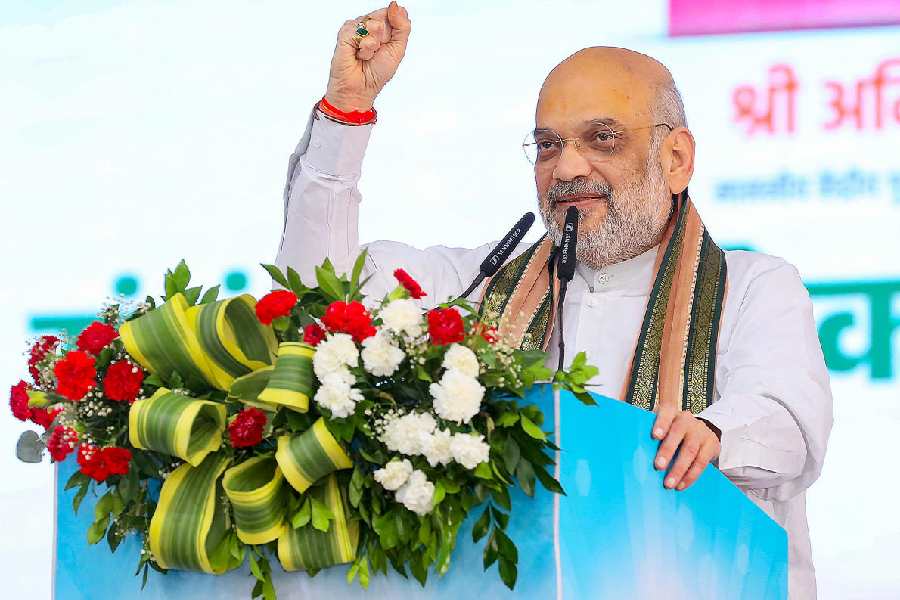Table of Contents

Introduction:
The socio-economic landscape of India has witnessed significant transformations under the leadership of Prime Minister Narendra Modi. One of the remarkable achievements touted by the Modi government is the substantial reduction in poverty levels across the nation. Amit Shah, the Home Minister of India, recently highlighted this accomplishment, asserting that the government has succeeded in bringing 25 crore people above the poverty line during the last decade.
Modi Understanding Poverty Alleviation Efforts:
Over the years, poverty alleviation has been a focal point of governance in India. Various governmental schemes and initiatives have been launched to uplift the underprivileged sections of society. The Modi government, since assuming power in 2014, has pursued an ambitious agenda aimed at inclusive development and socio-economic empowerment.
Key Initiatives Driving Poverty Reduction:
- Under the leadership of Prime Minister Modi, several flagship initiatives have been implemented to address poverty and its related challenges:
- Jan Dhan Yojana: Launched in 2014, this financial inclusion scheme aimed to provide banking services to the unbanked population, thereby facilitating access to credit and insurance services for the economically marginalized.
- Pradhan Mantri Awas Yojana (PMAY): This housing scheme aimed to provide affordable housing to the urban and rural poor, ensuring access to dignified living conditions and shelter for millions of households.
- Swachh Bharat Abhiyan: The Clean India Mission focused on improving sanitation and hygiene practices, which are crucial for promoting public health and enhancing the quality of life, particularly for the impoverished sections of society.
- Ayushman Bharat: The world’s largest health insurance scheme, Ayushman Bharat aimed to provide financial protection to vulnerable households against catastrophic health expenditures, thereby reducing the economic burden of healthcare costs.
- Skill India Mission: With a focus on enhancing employability and entrepreneurship among the youth, the Skill India Mission aimed to provide vocational training and skill development opportunities to millions, thereby enabling them to secure sustainable livelihoods.
Impact and Evaluation:
The concerted efforts of the Modi government in implementing these initiatives have yielded tangible results in poverty reduction. By providing access to financial services, housing, healthcare, and skill development opportunities, millions of individuals have been empowered to break the cycle of poverty and improve their socio-economic status.
Moreover, the government’s emphasis on infrastructure development, rural electrification, and agricultural reforms has contributed to enhancing livelihood opportunities and income levels for rural communities, thereby furthering the agenda of poverty alleviation.
Challenges and Future Directions:
While significant progress has been made in reducing poverty, challenges persist, and there is a need for sustained efforts to address them. Structural issues such as income inequality, regional disparities, and access to quality education and healthcare continue to hinder the goal of inclusive development. Going forward, the government must focus on enhancing the effectiveness and reach of existing schemes, addressing implementation bottlenecks, and adopting a multi-dimensional approach that encompasses not only economic factors but also social and environmental dimensions of poverty.
Furthermore, it is crucial to recognize the role of grassroots-level implementation and community participation in the success of poverty alleviation efforts. Local governance structures, non-governmental organizations, and community-based organizations play a pivotal role in identifying the needs of vulnerable populations, facilitating access to government schemes, and fostering inclusive development processes.
Empowering communities to actively participate in decision-making and development activities can enhance the effectiveness and sustainability of poverty reduction initiatives, ensuring that they are tailored to local contexts and responsive to the diverse needs of marginalized groups. Thus, fostering strong partnerships between the government, civil society, and grassroots organizations is imperative for accelerating progress towards the goal of eradicating poverty and building a more equitable society.
Conclusion:
The assertion made by Amit Shah regarding the upliftment of 25 crore people above the poverty line under the Modi government underscores the transformative impact of its policies and initiatives. By prioritizing poverty alleviation and inclusive development, the government has taken significant strides towards realizing the vision of a prosperous and equitable India. However, sustained efforts and strategic interventions will be essential to overcome remaining challenges and ensure that the benefits of development reach all segments of society.